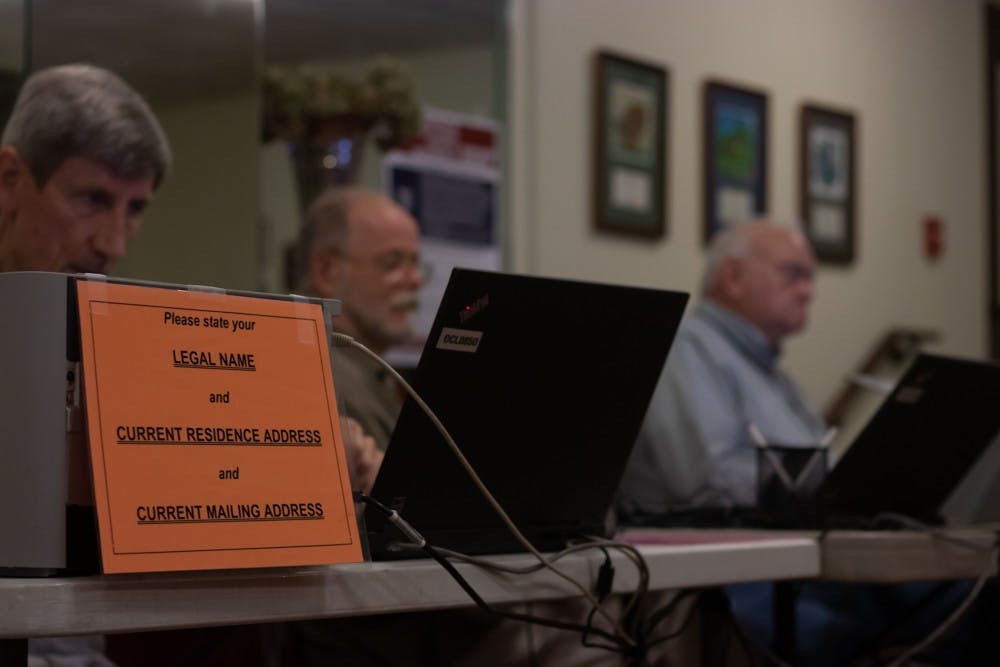On Tuesday, Nov. 5, Chapel Hill and Carrboro will hold local elections. For some, the arrival of another election day raises concerns that voter suppression, a contentious political topic nationwide, will be an issue at UNC.
A report by Tufts University found that the average student voting rate for colleges and universities in the U.S. in the 2018 midterm elections more than doubled from the last midterm elections.
But as a The New York Times article from October reports, more roadblocks to student voting across the nation, like limits on early-voting locations and restrictions on using student IDs to vote, have accompanied the growth in student turnout over the past few years.
“I think we saw students mobilized and ready to make their voices heard in 2016, which was very exciting,” senior and UNC Young Democrats President Alana Edwards said. “But I think, kind of along with that, since that election and even before, there has been a trend of particularly Republican legislatures making it more difficult for students to vote.”
Edwards said she thinks she can see this issue playing out on UNC’s campus, especially with recent concern about whether UNC is making enough of an effort to make One Cards count as valid voter identification.
N.C. voters approved a constitutional amendment last year that requires individuals to have a photo ID when voting in-person. House Bill 646, passed by the North Carolina General Assembly in June, then outlined the criteria that UNC System student and employee IDs must meet in order to be considered valid identification at the polls.
Now, UNC has to submit an approval form to the North Carolina State Board of Elections in order to meet a Nov. 15 deadline to make One Cards valid voter identification. Edwards said Young Democrats has contacted the University about its timeline for submitting but has received limited information.
“It boils down to the fact that not every student is going to have a form of valid ID that's going to prove their in-state residency aside from that One Card, especially for students who are out-of-state or may not have a drivers' license or passport,” Edwards said.
Edwards said lower-income students may rely on their One Cards in order to show N.C. residency and vote in Orange County. If they don't have them, she said, it becomes another unnecessary barrier to the ballot box that could suppress Democratic turnout on campus.




